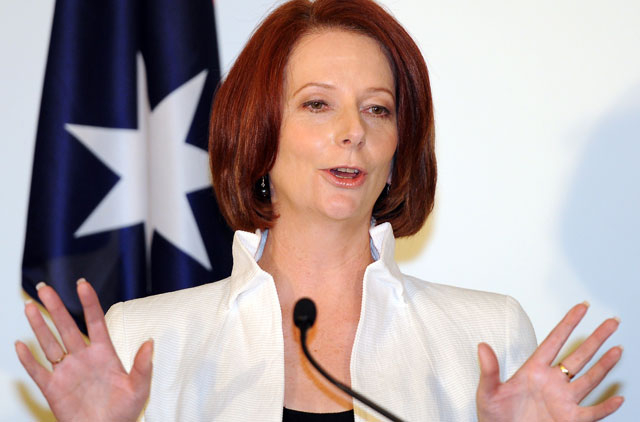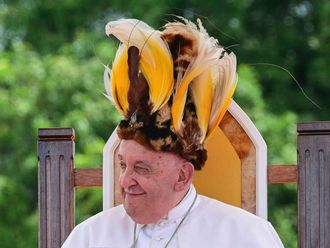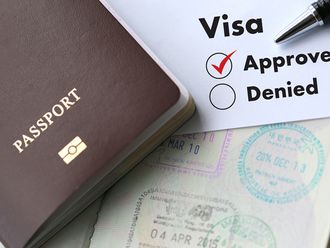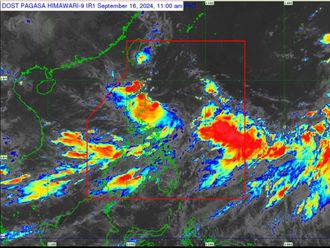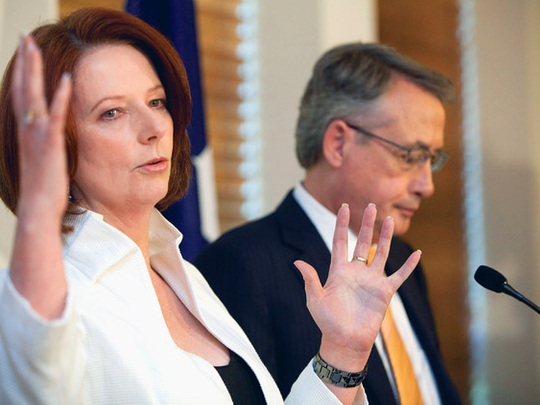
Canberra: Australian Prime Minister Julia Gillard has clung to power after on Tuesday winning the support of the two remaining undecided independent MPs, and will form a minority government next week.
In a day of suspense and last-minute twists, the three independents who still held the power to decide which side formed government, split up when one of them, North Queensland MP Bob Katter, appeared alone at a press conference on Tuesday morning and announced that he would support the Coalition led by Tony Abbott.
That left the equation deadlocked at 74 seats each to Gillard's Australian Labour Party and Abbott's Liberal-National Coalition in the 150-seat House of Representatives.
At 3pm on Tuesday, the two remaining undecided independents — Tony Windsor (Federal member for the seat of New England, in New South Wales) and Rob Oakeshott (Federal member for the seat of Lyne, also in NSW) — ended the stalemate when they announced they would support Gillard.
Soon after, a beaming Gillard addressed a press conference in which she pledged "to work tirelessly for the Australian people".
Labour will govern with the support of three independents and one Greens MP.
Conciliatory tone
Striking a conciliatory tone in the charged political environment, Gillard said she would try to find common ground with the Opposition in the new Parliament. "Labour is prepared to deliver stable, effective and secure government for the next three years," she said.
"Let our Parliament be more open than it ever was before.
"I know that if we fail in this solemn responsibility, we will be judged harshly when we next face the Australian people."
Gillard confirmed she had offered Oakeshott a ministerial portfolio, but said he had yet to make up his mind whether to accept. From the outset, Windsor had repeatedly said he was not interested in a ministerial position.
The prime minister-elect also said she would be offering a senior ministerial portfolio to former prime minister Kevin Rudd, the man she deposed in late June in a party coup. Political analysts have widely speculated that Rudd, a former diplomat who speaks fluent Mandarin, will be given the key Foreign Affairs portfolio.
Opposition Leader Abbott, for his part, expressed his disappointment at missing out after coming so close, but vowed to hold the Government "ferociously to account".
Late on Tuesday, Gillard met Governor-General Quentin Bryce at Government House where she conveyed her majority and presented the letters of support from the independents.
Gillard is said to have obtained written statements from the non-Labour MPs that they would support the government for the full three-year term.
In announcing their decision to support Gillard, Oakeshott and Windsor cited broadband, regional education and climate change as the main factors in their decision.
Labour vowed to push the A$43 billion (Dh144 billion) national broadband network, which aims to offer super high-speed internet to the majority of Australians.


